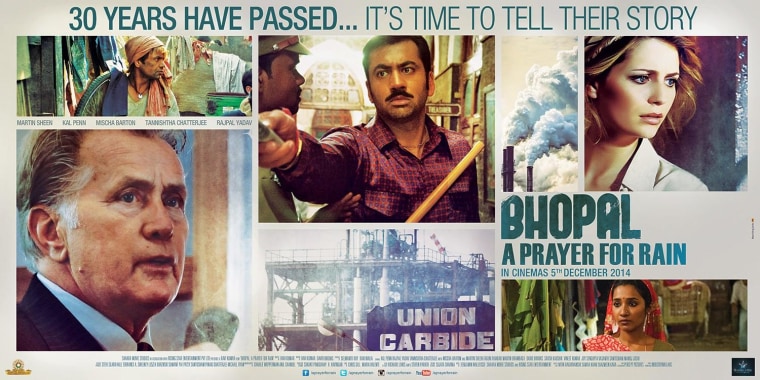Almost exactly three decades after the worst industrial disaster in history, a new film explores the events that led up to the accident that killed thousands of people in Bhopal, India in 1984.
In “Bhopal: A Prayer for Rain,” opening in New York City today, director Ravi Kumar follows the story of Dilip, a former rickshaw driver who gets a job at the Union Carbide pesticide plant in Bhopal in the early 1980s. While grateful for a well-paying position, Dilip -- played by Kal Penn -- and his co-workers become increasingly concerned by the lack of concern for safety around them.
“The Bhopal tragedy is one of the world’s worst industrial disasters, period,” Penn recently told the Wall Street Journal. “There was such a multitude of other factors at play: corruption within government, lax safety standards, lack of enforcement or oversight, intimidation, the need for jobs, and of course corporate legal loopholes.”
Between December 2nd and 3rd in 1984, a leak of the toxic organic compound methyl isocyanate killed at least 3,000 people immediately, and thousands more in the weeks following. (Thirty years later, there still isn’t an agreed-upon number as to how many people died due to the disaster.)
In addition to Penn, the film features Mischa Barton, and Martin Sheen as Warren Anderson, the American CEO of Union Carbide. The real-life Anderson was arrested as he headed to India after the accident, although he was eventually permitted to leave the country without facing trial. Anderson died in a nursing home in Florida in September at the age of 92.
Kumar told the Indian Express that he and his production team reached out to Anderson while writing the script to get his side of the story, but were unable to speak to him. They based his character on his speeches and historical accounts of the accident.
“We give the facts to our audience to decide who was at fault,” the director said.
